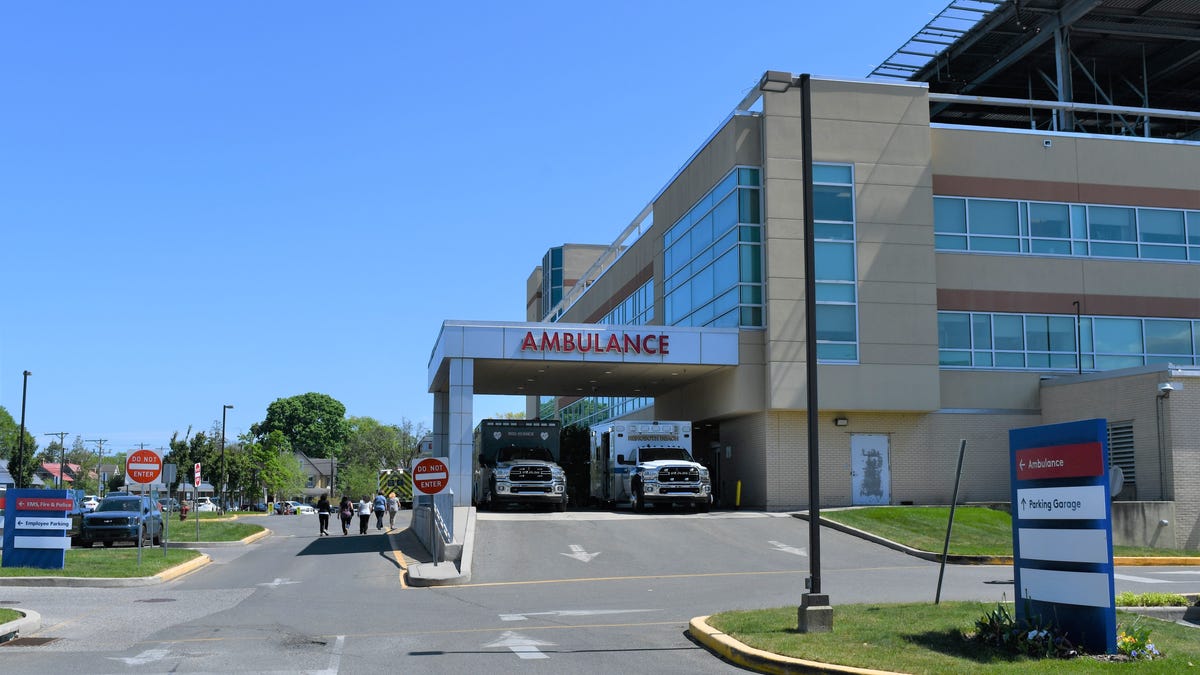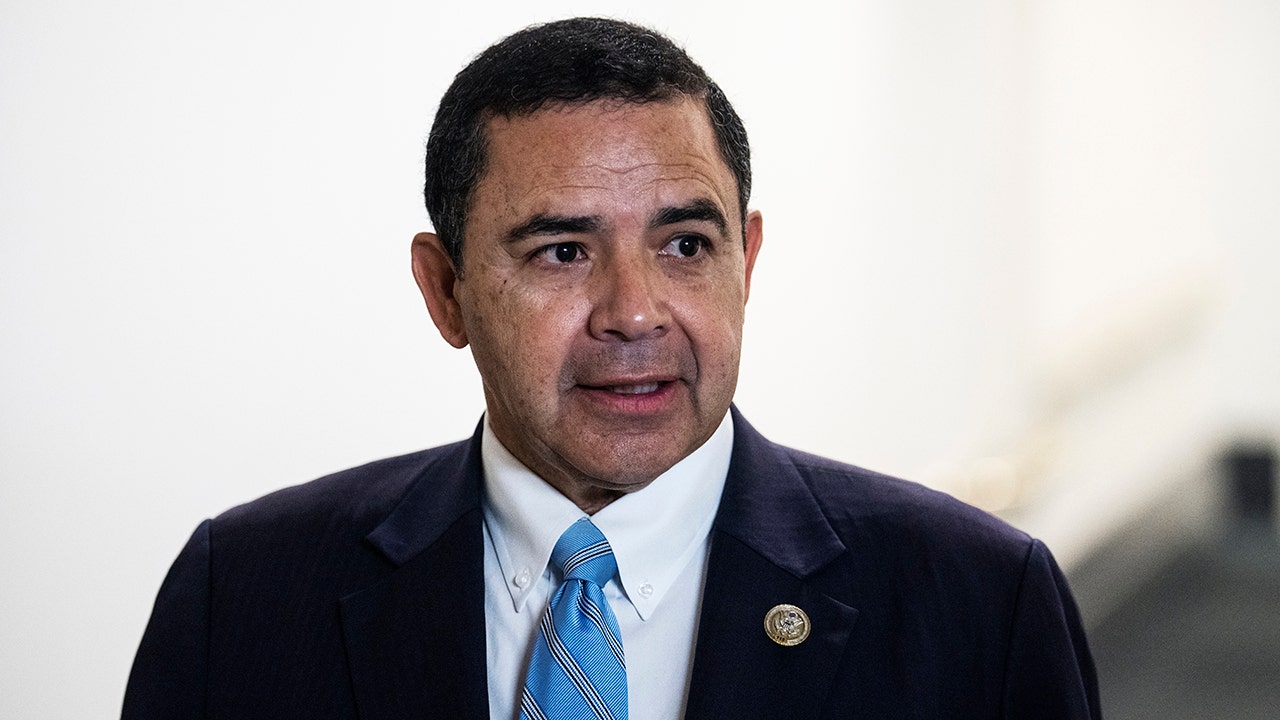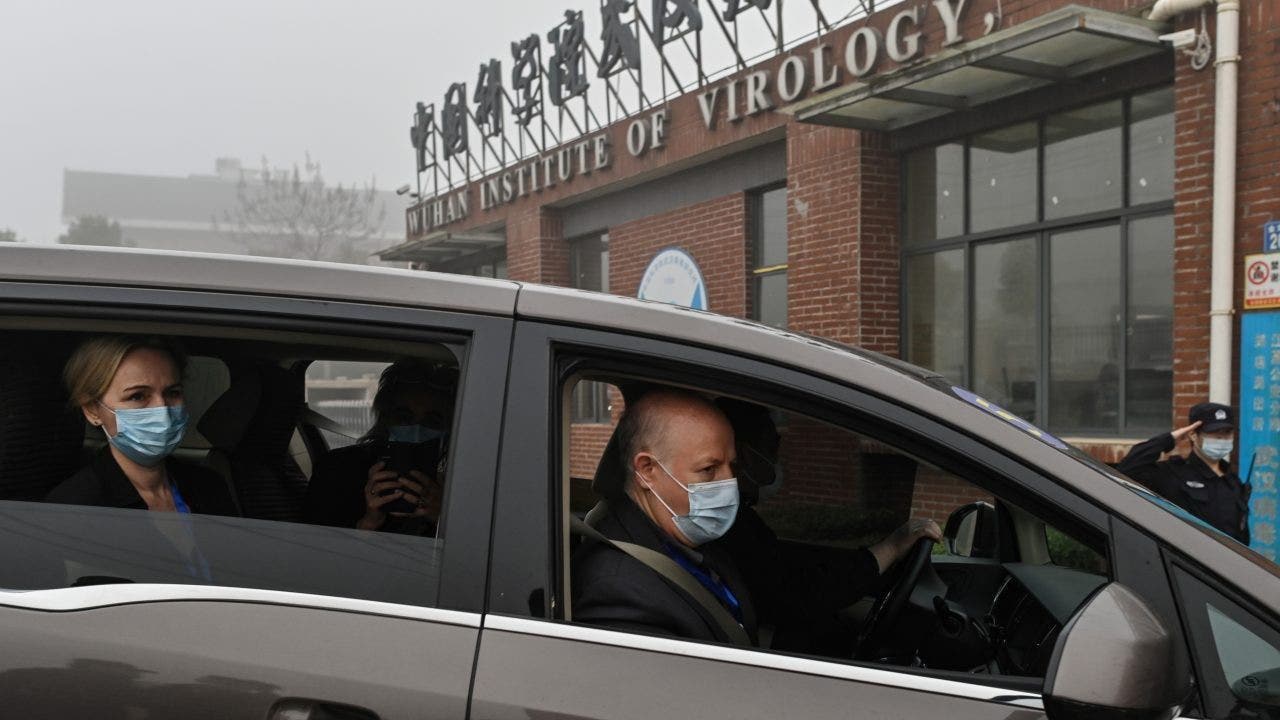Delaware
VIEWPOINT: This is a critical moment: Delaware must not go backward in health equity

Dr. LeRoi Hicks | PHOTO COURTESY OF CHRISTIANACARE
The proposed Delaware House Bill 350 is well-intended but would have terrible consequences for Delaware’s most vulnerable populations. There is a better way.
As a Black physician who has dedicated his 25-year career to understanding and addressing health equity, I am deeply concerned about Delaware’s proposed House Bill 350, which aims to address rising health care costs by establishing a body of political appointees that would oversee the budgets of Delaware’s nonprofit hospitals.
While the goal of bending the cost curve in health care may be well-intentioned, this bill will have horrific consequences for Delaware’s most vulnerable populations, including Black people, Hispanic people and other groups that have been traditionally underserved in health care. We can and must work together to solve this problem and provide the right care, in the right place, at the right time.
A tale of two cities
To borrow a phrase from Charles Dickens, Delaware, like much of America, is a tale of two cities. The experience of life—including a healthy, safe environment and access to good-quality health care—is vastly different depending on where you live and your demographic background. In the city of Wilmington, for example, ZIP codes that are just a few miles apart represent more than 20 years difference in life expectancy. This is not OK—it’s a sign that we have serious structural problems in our communities that are causing harm to people and making their lives shorter.
Importantly, chopping $360 million out of Delaware’s hospital budgets, as House Bill 350 would do in year one, is not going to help this problem—it’s going to make it worse. And in doing so, it would ultimately make health care in Delaware more expensive—not less expensive.
The key to lowering health care costs is to improve quality, access and equity
Data show that about 5% of patients in the United States account for more than 50% of all health care costs. These are primarily patients who have complex and poorly managed chronic conditions that cause them to end up in the most expensive care settings—hospitals, operating rooms, emergency departments.
The key to driving down health care costs is to improve quality and equity so that everyone is supported in achieving their best health, and these high users of the most expensive kinds of care are better supported in managing their health conditions such as diabetes or heart failure in the appropriate way. In doing so, they prevent the need for costly emergency or “rescue” care.
Let’s do more—not less—of what we already know works
Health care is not a one-size-fits-all industry. The delivery of care for patients across a diverse population requires multiple interventions at the same time. These interventions are designed not only to improve the quality of care but also to close the gap in terms of health care disparities. That’s important, because when we improve care and outcomes for the most vulnerable populations, we tend to get things right for everyone.
One type of intervention is about doing exactly the right things for a patient based on the evidence of what will help—and doing nothing extra that will cause harm or generate additional costs without providing additional benefit. An example of this might be ensuring that every patient who has a heart attack gets a certain drug called a beta blocker right after their heart attack, and they receive clear guidance and support on the actions they must take to reduce their risk of a second heart attack, such as regular exercise and good nutrition.
The second type of intervention is for the highest-risk populations. These are patients who live in poor communities where there are no gyms and no grocery stores, and people commonly have challenges with transportation and lack of access to resources that makes it difficult—sometimes impossible—to follow their plan for follow-up care. They lack access to high-nutrient food that reduces their risk of a second heart attack. They also live in areas where there are fewer health care providers compared to more affluent areas.
These interventions tend to be very intensive and do not generate income for health systems; in fact, they require significant non-reimbursed investment, but they are necessary to keep our most vulnerable patients healthy.
The medical community has developed interventions for these populations that are proven to work. A local example is the Delaware Food Pharmacy program, which connects at-risk patients with healthy food and supports their ability to prepare it. The program helps patients improve their overall health and effectively manage their chronic conditions so they can prevent an adverse event that would put them back in the hospital or emergency department.
When we work together, we succeed
We’ve seen incredible examples of how this work can be successful right here in Delaware. Delaware was the first state in the country to eliminate a racial disparity in colorectal cancer, and we did this by expanding cancer services, including making it easy for vulnerable people to get preventive cancer care and screenings. This is an incredible success story that continues to this day, and it was the result of thoughtful, detail-oriented partnerships among the state and the health care community. The work continues as we collaborate to reduce the impact and mortality of breast cancer in our state.
Unfortunately, these kinds of interventions are the first thing to go when health care budgets get slashed, because they don’t generate revenue and are not self-sustaining. These kinds of activities need to be funded—either through grants or an external funder, or by the hospitals and health care systems.
By narrowly focusing on cost, we risk losing the progress we have made
Delaware House Bill 350, as it’s proposed, would cause harm in two ways:
- First, it would compromise our ability to invest in these kinds of interventions that work.
- Second, it increases the risk that higher-cost health services and programs that are disproportionately needed by people in vulnerable communities could become no longer available in Delaware.
In states where the government has intervened in the name of cutting costs, like Vermont and Massachusetts, we see the consequences–less quality and reduced equitable access to much-needed services. House Bill 350 will widen the gap between those who have means and those who are more vulnerable.
These changes will lead to increased disease burden on these populations. They will end up in the emergency room more and hospitalized more, which is by far the most expensive kind of care. That’s not what anyone wants—and it’s the opposite of what this bill was intended to accomplish.
At this moment, in Delaware, we have an opportunity to put our state on a sustainable path to better health for all Delawareans. House Bill 350 is not that path. However, the discussion that House Bill 350 has started is something that we can build on by bringing together the stakeholders we need to collaborate with to solve these complicated problems. That includes Delaware’s government and legislators, the hospitals and health centers, the insurance, pharmacy and medical device industries, and most importantly, patients and the doctors who care for them.
LeRoi Hicks, M.D., MPH, FACP is the campus executive director for ChristianaCare, Wilmington Campus.
Note: This commentary was originally published on news.christianacare.org.
About ChristianaCare
Headquartered in Wilmington, Delaware, ChristianaCare is one of the country’s most dynamic health care organizations, centered on improving health outcomes, making high-quality care more accessible and lowering health care costs. ChristianaCare includes an extensive network of primary care and outpatient services, home health care, urgent care centers, three hospitals (1,430 beds), a freestanding emergency department, a Level I trauma center and a Level III neonatal intensive care unit, a comprehensive stroke center and regional centers of excellence in heart and vascular care, cancer care and women’s health. It also includes the pioneering Gene Editing Institute.
ChristianaCare is nationally recognized as a great place to work, rated by Forbes as the 2nd best health system for diversity and inclusion, and the 29th best health system to work for in the United States, and by IDG Computerworld as one of the nation’s Best Places to Work in IT. ChristianaCare is rated by Healthgrades as one of America’s 50 Best Hospitals and continually ranked among the nation’s best by U.S. News & World Report, Newsweek and other national quality ratings. ChristianaCare is a nonprofit teaching health system with more than 260 residents and fellows. With its groundbreaking Center for Virtual Health and a focus on population health and value-based care, ChristianaCare is shaping the future of health care.

Delaware
Delaware Senate amends captive insurance rule

Delaware’s state Senate has amended captive insurance laws on order to give the insurance commissioner additional flexibility to approve the types of financial institutions that would be authorized to hold required capital and surplus of captive insurance companies.
The bill, SB 249, which passed 19-1, has now been referred to the Delaware House of Representatives, which must also pass the bill for it to become law.
An explanatory memorandum explained: “This bill amends Chapter 69 of Title 18 relating to captive insurance to provide the Commissioner with additional flexibility to approve those types of financial institutions that would be authorized to hold required capital and surplus of captive insurance companies.
“This change would recognise the current financial environment and practices of financial institutions and captive insurers. Assets can be safely held in financial institutions other than banks and do not need to be held in Delaware in many circumstances where the type of risk does not require it, and the Commissioner will be authorized to impose additional conditions on captives related to capital and surplus to ensure the solvency and efficient operations of captives.”
The House committee on Economic Development/Banking/Insurance & Commerce is now expected to take up the bill within 12 days of its passage from the Senate, which took place on April 25.
Delaware
Delaware hospitals are under threat —political oversight will lose millions and upend care

3-minute read
Delaware Gov. Carney plans to spend $2B to fight health care costs
Governor John Carney discusses Healthcare
Legislation moving its way through the Delaware General Assembly — HB 350 — to put paid political appointees in control of our state’s nonprofit hospitals is not what the doctor ordered.
This proposal will immediately slash $360 million from our adult acute care hospitals and the politician-controlled oversight board it creates can make even more cuts. The reduction is due to an arbitrary 250% Medicare cap on commercial reimbursement provision contained in the bill.
What does that actually mean?
An immediate $360 million cut that will slash hospital services, up to 4,000 hospital jobs, specialty care, quality and community programs. It will halt expansion of services which also impacts construction jobs and other trades that are critical to enhancing our healthcare infrastructure and access.
Limiting hospital resources to recruit and retain top doctors and nurses will risk healthcare quality and access in the First State. This also will exacerbate the healthcare provider shortage in Delaware at a time when our aging population demands more, not fewer, healthcare providers. As the state with the fifth-oldest population in the country, Delaware will be plunged into a healthcare crisis.
Those cost caps in the bill also put at risk the recent historic collaboration between Delaware hospitals and policymakers for Delaware’s Medicaid program to receive more than $100 million in federal dollars by establishing a new state provider assessment.
The funding is meant to bolster efforts at improving access, workforce recruitment and retention, behavioral health services, and health equity. The 250% of Medicare cap proposed in HB 350 would lower the average commercial rate paid to hospitals far too much to make the contemplated model work.
Clearly, the provider assessment negotiations show hospitals know how to work collaboratively with policymakers for the good health of Delawareans.
Any serious plan to maintain patient quality and access to healthcare while containing inflationary costs requires insurers, government, practitioners, labor, medical device and pharmaceutical companies to work together on collaborative solutions.
Opinion: We need to boost access to anti-obesity medications in Delaware — not limit it
Being on the front line of delivering public health, the member hospitals and health systems that DHA represents respect our obligation to be central to healthcare solutions for the public. With that in mind, we came to the table with meaningful alternatives that address healthcare affordability, enhance transparency and establish a collaborative effort to identify real solutions to our shared concerns.
Unfortunately, we simply did not have adequate time to engage in a meaningful stakeholder process on a massive healthcare policy.
Every resident of Delaware should be as shocked as we are that legislative leaders are instead continuing to risk public health by pushing the badly flawed healthcare control provisions in HB 350. If Delaware is willing to put paid political appointees in charge of the oversight of the state’s largest private-sector employer, what industry is next?
This is not what the doctor ordered. There is a better way, and we stand ready to work together to address our shared concerns and put Delawareans first.
Brian Frazee is president and CEO of the Delaware Healthcare Association, which represents the First State’s hospitals, health systems, and healthcare-related organizations.
Delaware
Police, state warn: 73 suspected drug overdoses, 2 deaths in 1 week in Sussex County

Beebe ER Dr. Paul Cowan discusses overdose surge May 1, 2024
Several Beebe Healthcare officials spoke at a press conference at Margaret H. Rollins School of Nursing.
Over the past week in Sussex County, there have been 73 suspected drug overdoses, two people are dead and the National Guard has been enlisted to find out why.
Delaware State Police and the Department of Health and Social Services are continuing to warn the public as a surge of particularly severe overdoses happens across the state’s southernmost county.
“Exercise extreme caution, refrain from consuming unknown substances, and avoid illegal drugs altogether,” the agencies said in a news release Thursday. “Individuals struggling with substance abuse are encouraged to seek immediate assistance from medical professionals or addiction support services.”
The 73 suspected overdoses occurred between Friday, April 26 and Friday, May 2, with toxicology tests pending to confirm two suspected overdose deaths, the release said. The majority of overdoses have occurred in the Georgetown, Millsboro, and Milford areas, according to the release.
To determine the drugs’ composition, police enlisted the Delaware National Guard Wednesday to test samples from overdose victims. Initial samples showed packages containing the following:
- Xylazine, also known as “tranq,” a veterinary sedative
- Bromazolam, an unlicensed benzodiazepam
- Fentanyl, a synthetic opioid
- Quinine, commonly used to treat malaria
- Caffeine
The substances involved were packaged in small, white, wax-covered paper bags, police said, typically associated with heroin.
Background: Delawareans asked to ‘exercise extreme caution’ after string of overdoses
Beebe Healthcare in Lewes held a news conference Wednesday to address the more than 30 overdoses the hospital has seen since April 25. One of those patients died and more than 11 required mechanical ventilation and intubation, Beebe Senior Vice President and Chief Physician Officer Dr. Paul Sierzenski said. Many patients also required a significant amount of naloxone to revive.
All involved agencies have warned the recent overdoses have been much more medically severe than usual. There are no patterns related to age, sex or race, Division of Mental Health and Substance Abuse Director Joanna Champney said at the Beebe news conference.
Support for those struggling with substance abuse and a list of Narcan training events are available at helpisherede.com.
In Sussex, patients can talk with clinicians about substance abuse regardless of their insurance status at the Thurman Adams State Service Center at 546 S. Bedford St. in Georgetown.
More: Fatal overdoses in Delaware appear to be going down, but new troubling trends are emerging
Assistance for those struggling with substance abuse is also available through the following avenues:
- 911: In cases of overdose or medical emergencies, dial or text 911.
- 988: For immediate crisis support, dial 988.
- Delaware 211: Dial 211 or visit delaware211.org for free, confidential assistance in multiple languages.
- Delaware Hope Line: Call 833-9-HOPEDE (833-946-7333) for 24/7 access to resources, support, and crisis assistance.
- Treatment Connection: Find nearby treatment providers at TreatmentConnection.com.
Shannon Marvel McNaught reports on southern Delaware and beyond. Reach her at smcnaught@gannett.com or on Twitter @MarvelMcNaught.
-

 News1 week ago
News1 week agoLarry Webb’s deathbed confession solves 2000 cold case murder of Susan and Natasha Carter, 10, whose remains were found hours after he died
-

 World1 week ago
World1 week agoHaiti Prime Minister Ariel Henry resigns, transitional council takes power
-

 News1 week ago
News1 week agoFirst cargo ship passes through new channel since Baltimore bridge collapse
-

 World1 week ago
World1 week agoSpanish PM Pedro Sanchez suspends public duties to 'reflect'
-

 World1 week ago
World1 week agoUS secretly sent long-range ATACMS weapons to Ukraine
-

 News1 week ago
News1 week agoAmerican Airlines passenger alleges discrimination over use of first-class restroom
-

 Movie Reviews1 week ago
Movie Reviews1 week agoHumane (2024) – Movie Review
-

 Education1 week ago
Education1 week agoVideo: Johnson Condemns Pro-Palestinian Protests at Columbia University

















